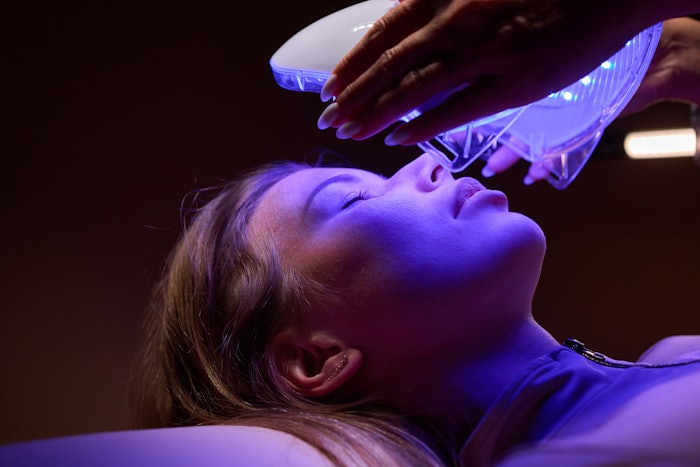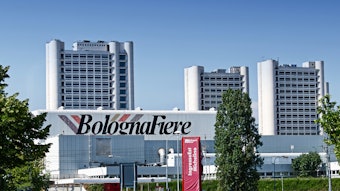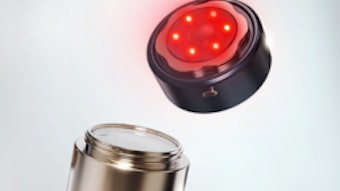
The beauty industry is stepping into a new era where technology and innovation are transforming how consumers define self-care. From AI-powered tools that analyze the skin’s needs to augmented reality apps that create seamless virtual try-ons, beauty tech is making personalization more attainable than ever before.
Smart devices are bringing once high-end treatments into our homes, pushing boundaries and reshaping everyday routines. These advancements aren’t just about convenience; they’re about creating experiences tailored uniquely to consumers' needs.
We asked Industry insiders to share their perspectives on how they see beauty tech evolving and what impacts they anticipate it will have on the beauty industry in the future. Insights include predictions about new technological advancements, shifts in consumer behavior, and potential disruptions to existing business models.
AI-Driven Technology and the Future of Personalized Skin Care
 Angela Medina, director of sales, Jojoba DesertJojoba Desert
Angela Medina, director of sales, Jojoba DesertJojoba Desert
Medina adds, “As an ingredient supplier, this shift is significant. It means that multifunctional ingredients - like our JD Jojoba Oil or JD Phyto-Or 1%, which support barrier repair and skin resilience - can be applied more strategically. The same product might serve different roles depending on the user’s needs: barrier support in winter, anti-inflammatory benefits during flare-ups, or hydration maintenance during travel. AI makes it possible to map these ingredient functions to specific, evolving skin scenarios.”
 Kristen Corso, vice president of marketing, Innovative Beauty GroupInnovative Beauty Group (IBG)
Kristen Corso, vice president of marketing, Innovative Beauty GroupInnovative Beauty Group (IBG)
Advancements in Beauty Tech by 2025
Medina says, “The most interesting developments are those that connect diagnostic data to formulation design. We’re excited about platforms that not only analyze the skin but also help tailor product recommendations - or even formulations - based on live skin readings. This opens the door to more thoughtful use of ingredients, and in the future, maybe even modular skin care routines that adjust with the user’s needs. It’s a shift from “personalized” to “responsive” skin care - something we believe the industry is just beginning to explore.”
Corso adds, “AI-accelerated product development will compress innovation cycles dramatically. This allows manufacturers and brands to be more responsive and iterative, testing and refining formulations based on real-time consumer feedback.”
 Baralan, Maurizio Ficcadenti, global R&D manager, BaralanBaralan
Baralan, Maurizio Ficcadenti, global R&D manager, BaralanBaralan
 Nina Esposito, marketing manager, Provital USAProvital USA
Nina Esposito, marketing manager, Provital USAProvital USA
Esposito concludes, “What makes AI truly revolutionary is its ability to predict how skin will respond to specific ingredients, eliminating the trial-and-error frustration that plagues so many consumers. Brands leveraging this technology can offer bespoke solutions that evolve with users over time, adapting to seasonal shifts, lifestyle changes, and even aging concerns. Beyond product recommendations, AI will transform diagnostics, virtual consultations, and ingredient innovation, making skincare smarter, faster, and more results-driven than ever before. The future? A beauty industry where personalization isn’t a luxury—it’s the standard. For brands, this means a game-changing opportunity to foster deeper consumer trust, boost engagement, and deliver skincare solutions with unmatched accuracy. Those who embrace AI-driven personalization will set the gold standard in modern beauty innovation.”
The Role of Augmented Reality in Enhancing the Beauty Shopping Experience
Corso says, “AR does create engaging experiences but faces real challenges with color accuracy across devices. The technology simply can't deliver consistent visualization across different screens, lighting conditions and perspectives. Where AR delivers value is in discovery and engagement, not conversion. It can absolutely help to create memorable brand interactions and raise awareness, the proof would be measuring AR success through engagement metrics rather than direct attribution to sales.”
Utilizing Technology to Make Beauty Products and Services More Accessible
Ficcadenti says, “Technology has the power to break down barriers and make the beauty industry more inclusive and accessible to a wider audience. As tech innovations continue to evolve, beauty products and services will be designed to cater to diverse needs, making the industry more equitable and sustainable.”
He concludes, “Baralan is already contributing to the shift toward more inclusive and sustainable packaging solutions. Inclusive packaging features, such as easy-open caps, ergonomic designs, and lightweight materials, make products more accessible for people with different needs, including the elderly and individuals with disabilities. Additionally, 3D printing technology enables custom designs on product surfaces, even on transparent glass, without requiring costly tools or special production runs. This innovation allows brands, including smaller companies, to enhance their market presence. Baralan also focuses on refillable and reusable packaging, which reduces environmental impact and long-term costs, making high-quality products more affordable and sustainable. Technology-driven inclusivity is set to drive the future of universal beauty, providing consumers worldwide with more personalized, affordable, and eco-friendly beauty experiences.”
Corso says, “Generative AI is fundamentally changing how consumers interact with beauty knowledge. These conversational interfaces are becoming trusted advisors, demystifying ingredients and application techniques that previously required expert consultation or turning to your favorite influencer. This represents a power shift in beauty—from brands controlling information to consumers having on-demand expertise.”
Challenges of Integrating Technology in Beauty
Esposito says, “As AI and cutting-edge tech redefine beauty, the challenge isn’t just about innovation—it’s about trust. While AI, AR, and data-driven skin care create hyper-personalized experiences, consumers still crave the human connection that makes beauty feel personal. Over-relying on algorithms without thoughtful execution could create a disconnect, making it crucial for brands to blend high-tech solutions with authenticity. Another key concern? Data privacy. Personalized skincare thrives on in-depth insights—from skin scans to shopping habits—but with great data comes great responsibility. Transparency, ethical data collection, and rock-solid cybersecurity are non-negotiables in earning and maintaining consumer trust.”
Esposito adds, “Then there’s accessibility and inclusivity. Not everyone has access to high-tech tools, and AI-driven beauty must serve all consumers—not just those with the latest devices. Additionally, ensuring AI recognizes diverse skin tones, concerns, and conditions is essential to avoid bias and truly democratize beauty. The brands that will win in this tech-driven beauty revolution are those that don’t just innovate—they create meaningful, inclusive, and ethical experiences. Because the future of beauty isn’t just smart—it’s soulful.”
Corso says, “Our industry faces a growing authenticity crisis. As AI-generated content becomes indistinguishable from reality, consumers will struggle to differentiate between actual products and results versus digital creations. The accelerated pace of innovation risks will likely create beauty fatigue, leaving consumers to crave more simplicity. The brands that will thrive aren't necessarily those with the most advanced technology, but those who use technology to create more human connections. Technology should enhance the sensorial and emotional experience of beauty, not replace it.”














